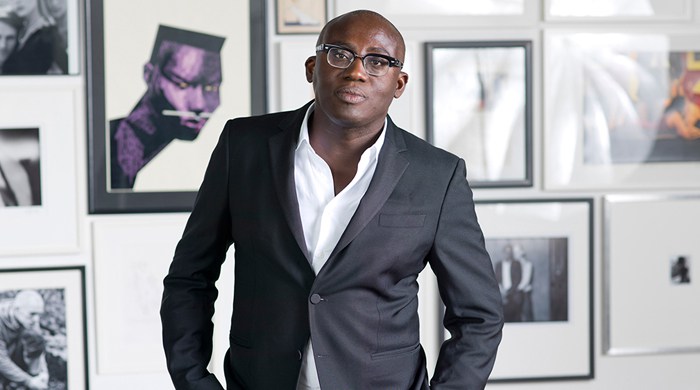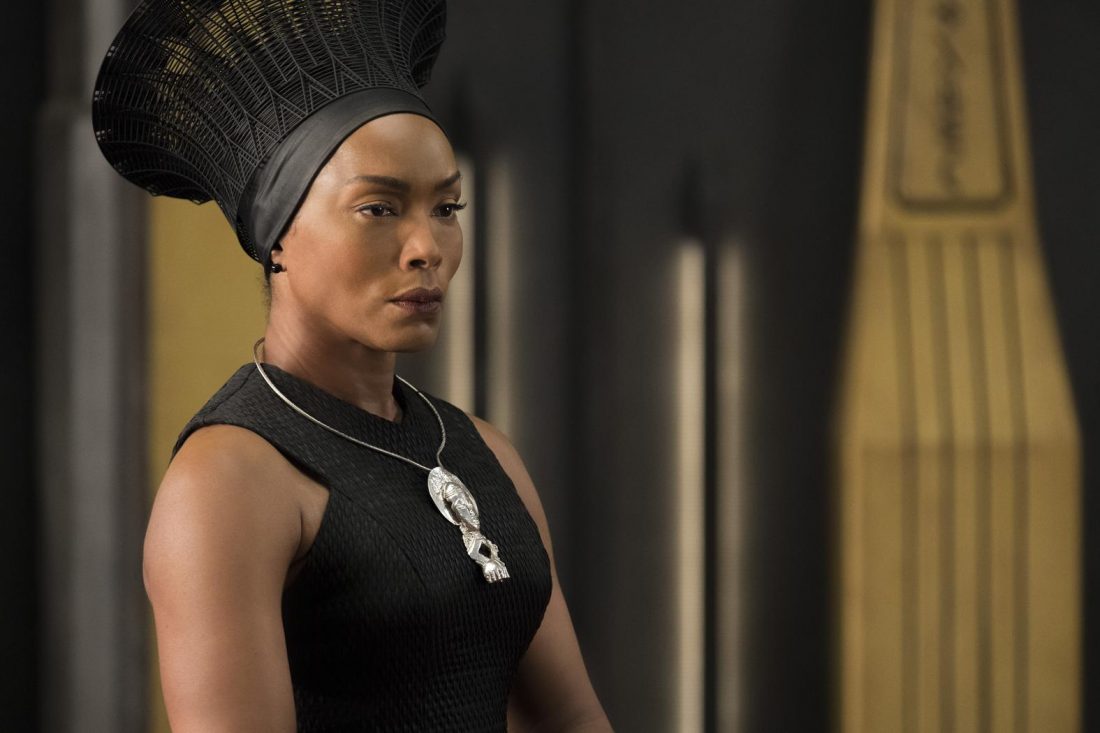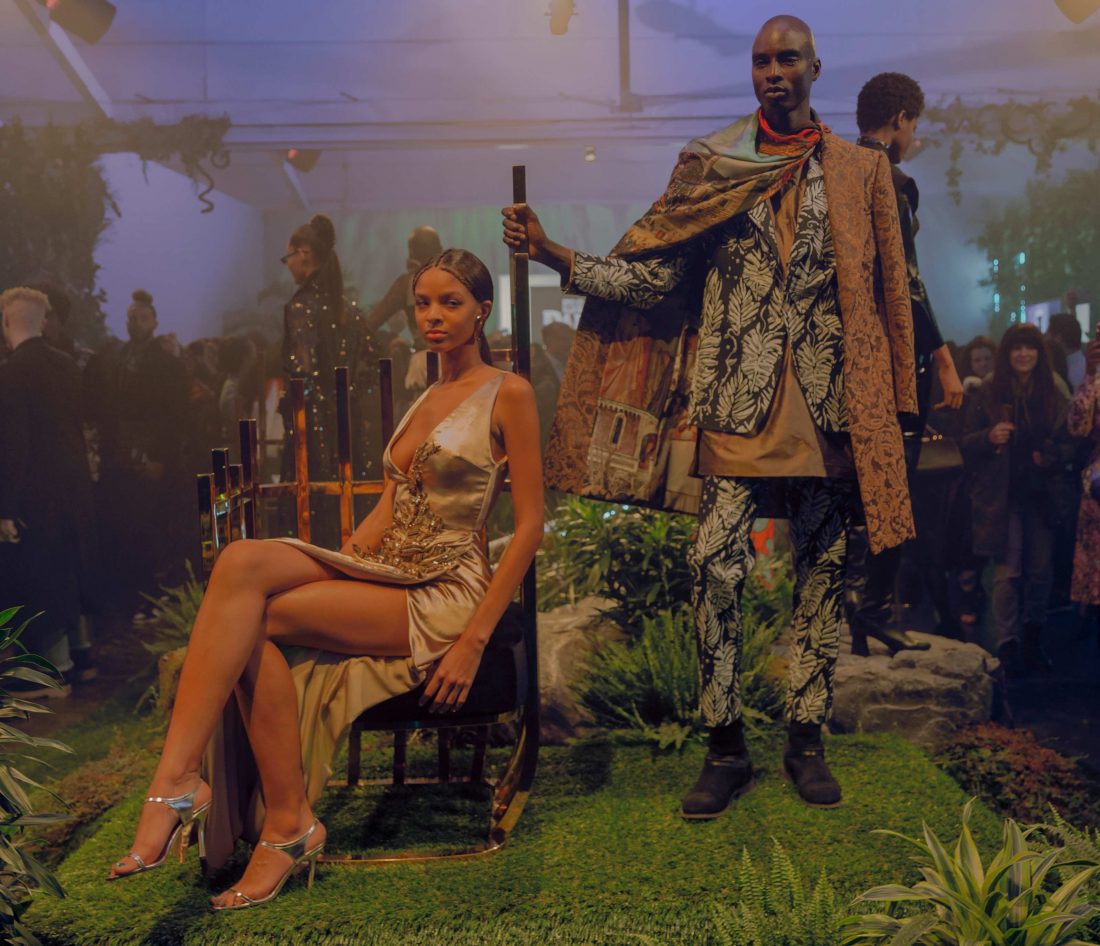London Fashion Week is in full swing so we put the spotlight on all of the top black fashion figures who are making waves in the industry right now. Marvel Studios’ Black Panther film has pretty much broken the internet in so many more ways than one.
Not only has it been a breakthrough for mainstream film, for its Afrofuturist brilliance and outstanding entertainment, a lot of focus was on the wardrobe both on screen and at the American and British premieres. With fashion becoming a lot more conscious of cultures, the importance of representation and celebrating diversity; models, designers and editors of colour are getting the chance to showcase their incredible talents in the limelight.
Fashion Industry Figures and Africa Fashion Week London

Last year was a ground-breaking year for Vogue UK magazine with Edward Enninful OBE taking the reins as Editor-in-Chief of the #NewVogue. With the iconic Adwoa Aboah becoming the face of his first ever issue, there was a round of applause coming from all over the world for this necessary appointment and exciting new chapter. When asked to define his era of Vogue, he said: “I wanted it to be a very diverse magazine, and open to the world. Still with high standards, but more welcoming. I mean, that’s the world today! I wanted it to be topical and to show what people care about today. We’re not going to shy away from topics, but we’ll reflect on ideas, see things through the Vogue lens. Every issue you’ll see something different, but for me a magazine that’s successful is one where something flows every month. You know, different ages, different colours. I feel like the new way is just to be inclusive.” His anything-is-possible attitude sent waves of inspiration to aspiring fashionistas of colour.
Olivier Rousteng, the creative director of Balmain is also another high-profile fashion figure who was in the headlines again recently for his launch with 44 François Premier, a capsule collection of red carpet-worthy dresses. The designer’s glamorous creations are a first for the fashion house and his creativity mixed with sass has been iconic and recognisable since his appointment. An article in Dazed highlighted the fact that although there are people such as Rousteng and Enninful in high fashion positions, there is still a lot more progression needed for fashion diversity, as Dazed puts it, “further than the end of the runway.”
Ronke Ademiluyi is another fashion figure who deserves recognition. Founder of Africa Fashion Week London and Africa Fashion Week Nigeria, Europe’s largest fashion event promoting and nurturing African and African-inspired design talent. With a collaborative catwalk, exhibition and business development program, AFWL has led the way in highlighting Africa’s emerging designers and apparel industry and has been at the forefront of bringing awareness of Africa’s burgeoning fashion industry to the international market. The shows are in August and usually garners over 5,000 attendees since its opening in 2011.
Political Conscious Clothing
Not only does diversity in fashion refer to the importance of individuals, it also takes into account the trend for impactful awareness-raising through garments and styles too. Refinery 29 reported on the Malcolm X Legacy, , a clothing collection that taps into “this new era of global social activism” during Harlem Fashion Week. Activist and civil rights leader Malcolm X’s daughters, Attallah, Qubilah, Ilyasah, Gamilah, Malikah, and Malaak Shabazz presented their range in the Museum of the City of New York, while Malcolm’s “Bamboozled” speech was playing in the background.
The night championed 17 different designers of color including Christy + You, Rose Paulino, Styles of Imagination, and Beast Mode by Marshawn Lynch. Graphic tees with slogans such as “by any means necessary,” “a man who stands for nothing will fall for anything,” and “legacy” were intended to be poignant and accessible; everything is priced under $50 and available online.
Yvonne Jewnell designed the range saying, “there are so many millennials who have no idea about Malcolm X besides what’s in our textbooks, and even then, it’s limited to one or two pages.”
Partnering with the sisters on this collection meant a celebration of people who stand up for what they believe in. “[It’s] something so relevant in our political climate,” she continues. “It’s paying homage to and respecting his legacy and using it to be a vehicle for change.”
Wakandan Fashion

For many, the Welcome to Wakanda Fashion Show at New York Fashion Week last week was a necessary and respected spectacle. Marvel commissioned seven designers and two “veteran” hair and makeup artists to bring Wakanda to life, according to Vanity Fair, and featured a number of designs inspired by the costumes in Marvel’s latest blockbuster.

Cushnie Et Ochs, Ikiré Jones, Tome, Sophie Theallet, Fear of God, Chromat, and Laquan Smith were the designers featured, not to mention Rodney Cutler and Nick Barose who were tasked with hair and makeup. Rodney Cutler said: “You’ve got the movie element and the fashion part, so we tried to blend it together because I think that’s sort of the world we live in now. There’s not really a separation, it’s like music, movies, social inspirations, fashion, and beauty all tied into one.”
Ruth Carter’s job to style the Black Panther wardrobe was a dream come true but also as big a responsibility as was in Ryan Coogler’s hands. In her Elle Magazine interview, Carter confirmed that the starting point for all the costumes was of course, Africa. “I studied the various and vast countries and the tribal influences around the countries. Not only of the indigenous African tribes, but also modern fashion and African-based designers. I really wanted to understand where they were in contemporary times. I wanted to understand how Africa has modernized and through that lens give Wakanda an even more forward feeling and look.
Because Wakanda is so forward-thinking, I went beyond the African-based designers and looked at some Japanese designers like Yohji Yamamoto and Matsuda. I also needed to understand colonization. Surprisingly, I found that a lot of the African fabrics that you see are from Holland and were brought to Africa and embraced by the African cultures long ago. The wax cloth is a Dutch creation. That was one of the reasons you won’t see a lot of that fabric in Black Panther, because although it does identify with Africa, it’s directly a colonized example of fashion.”
The political statements in the Black Panther wardrobe were as subtle yet strong as the film itself. Not only was the styling incredibly beautiful, the fashion extended beyond the screen. Celebrities such as Michaela Coel, SZA, Lupita and Stormzy are just a few names who were seen in African fabrics, making a proud statement on their heritage and the importance for diverse recognition in the industry.












